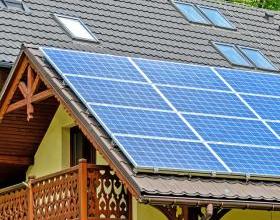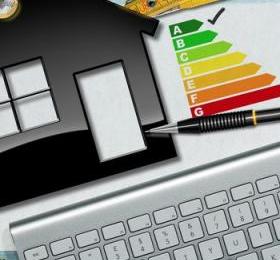The facility, approved on May 13, consists of a 110% tax deduction spread over 5 years or a discount on the invoice with the assignment of credit to banks, financial intermediaries or even to the company that will carry out the works.
From 1. July 2020 to 31 December 2021 it will be possible to take advantage of the facilities called ecobonus and sismabonus at 110% for all energy requalification and seismic improvement works of condominiums and individual family units (used as first homes), including:
- Interventions for the thermal insulation of vertical and horizontal opaque surfaces affecting the building envelope for more than 25% of the gross dispersing surface. The deduction is calculated on a maximum spending ceiling of 60,000 euros multiplied by the number of real estate units that make up the building.
- Interventions on the common parts of buildings for the replacement of existing winter air conditioning systems (also combined with photovoltaic systems and relative storage systems, heat pumps, etc.). The deduction is calculated on a maximum spending ceiling of 30,000 euros multiplied by the number of real estate units that make up the building and is also recognized for the costs related to the disposal and remediation of the replaced plant. With the interventions, an efficiency at least equal to the product class A provided for by EU regulation 811/2013 must be achieved.
- Interventions on single-family buildings for the replacement of existing winter air conditioning systems (also combined with photovoltaic systems and relative storage systems, heat pumps, etc.). The deduction is calculated on a maximum spending limit of 30,000 euros and is also recognized for costs related to disposal and reclamation
The rate of 110% will therefore also be applicable for installations of photovoltaic solar systems with a spending ceiling of 48,000 euros (2,400 euros per kW of nominal power) it will also be possible to integrate storage systems (up to 1,000 euros of expenditure per each kWh of storage capacity). The installation must be carried out jointly with at least one of the three interventions listed above.
Facilitated installations of infrastructure for recharging electric vehicles in buildings are also facilitated, always in conjunction with at least one of the three interventions listed above.

Photovoltaic systems, storage systems and charging columns
The maximum expenditure for photovoltaic systems that take advantage of the 110% deduction measure is set at € 48,000 with a maximum cost per kW of € 2,400 which drops to € 1,600 in the case of building renovation works. The same spending limit is also envisaged for the installation of storage systems, with a unit cost of less than 1,000 € / kWh.
Art. 128-ter Transformation of tax deductions in discount on the amount due and in tax credit transferable
What is possible?
For photovoltaic solar systems, for energy storage systems and for columns for charging electric vehicles, it is possible to:
- a contribution of the same amount, in the form of a discount on the amount due, advanced by the supplier who carried out the interventions and recovered by the latter in the form of a tax credit, with the option of subsequently transferring the credit to other subjects, including credit institutes and other financial intermediaries.
- the transformation of the corresponding amount into a tax credit, with the faculty of subsequent transfers to other subjects, including credit institutions and other financial intermediaries.
This double possibility is also foreseen for the interventions of recovery of the building patrimony, energy efficiency, adoption of anti-seismic measures and recovery or restoration of the facade of the existing buildings.
Discount on invoice or assignment of credit
The discount on the invoice or the assignment of credit apply to the interventions carried out in 2020 and 2021.
The tax credit is used with the same division into annual shares with which the deduction would have been used. The portion of tax credit not used in the year can be used in subsequent years, but cannot be requested for a refund.
Who is entitled to the eco-bonus?
All resident and non-resident taxpayers can use the bonus, even if they have business income, who own the property subject to intervention for any reason. In particular:
- The condominiums
- Natural persons
- The autonomous institutes of popular houses (IACP) and entities with the same social purposes
- Undivided housing cooperatives
This is an important opportunity to restart the economy after the coronavirus crisis. The decree will bring a capital injection of 7 billion euros, thus encouraging the energy transition in Italy.





